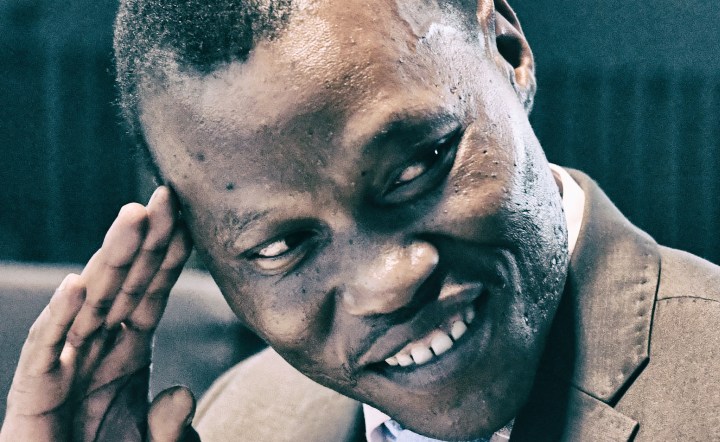ANALYSIS
Price of instability: Mayoral merry-go-round sucks cash from big cities’ coffers

Wobbling coalition governments aren’t only about political instability. They come at a high price, estimated at ‘millions, billions’ by a local government expert.
Last week, the Johannesburg city council was wrangling about who will be the city’s ninth mayor in seven years. Tshwane had three different mayors in the first three months of 2023 alone.
This is how very messy coalition politics plays out. But, although the resulting political instability speaks for itself, less attention has been paid to another pressing issue: how much is the mayoral merry-go-round costing us?
The responsibilities of executive mayors are significant. The Local Government Handbook produced annually by the South African Local Government Association lists mayoral tasks as including guidance of the “fiscal and financial affairs” of the municipality; overseeing the preparation of the annual budget; and monitoring the chief financial officer and the municipal manager.
Perhaps surprisingly, no particular qualifications are necessary: if you can be elected as a local councillor, you can be elected as mayor.
As short-lived Tshwane mayor Murunwa Makwarela discovered in March, however, there are certain disqualification criteria for councillors. One is that you cannot be an “unrehabilitated insolvent”, as emerged in Makwarela’s case.
Mayors are well paid — particularly for a job with so few entry requirements. Salaries vary according to the size of the municipality, but in big cities like Johannesburg, the executive mayor takes home close to R1.5-million a year.
And for mayoral pals, there are knock-on benefits. Those appointed as members of mayoral committees earn more than R1.1-million a year.
The Mayoral Handbook of the Department of Cooperative Governance and Traditional Affairs stipulates further perks for mayors. These include a housing allowance “paid to mayors irrespective of whether they utilise a mayoral residence offered to them or not”. Mayors and their spouses are also “entitled to unlimited air travel (Business Class) at the expense of their municipality”.
Former mayors receive a relocation allowance that includes “the costs of packing and unpacking and other incidental expenses”. They are given a municipal car and driver for a month after their tenure ends. They may also request the use of two clerical staff for an extra month.
The costs mount
It is not hard to imagine how quickly these costs mount up — particularly if more than one person is receiving overlapping mayoral benefits at the same time.
Local governance expert Jaap de Visser, who is a professor of law at the University of the Western Cape, told Daily Maverick that the costs associated with the rapid turnover of mayors were both direct and indirect.
One of the major direct costs stems from how expensive it is to stage the special council meetings at which mayors are elected or deposed.
The Johannesburg council has held 16 extraordinary (unscheduled) meetings this financial year alone, at an approximate cost of R500,000 each — bringing the tab for those meetings to around R8-million.
TimesLIVE quoted former council speaker Vasco da Gama this week as explaining that the costs result from the need to have catering, security and medical services for as many as 300 people per sitting.
De Visser explained that the costs of the meetings vary from one municipality to the next. He estimated a Tshwane council meeting cost R150,000 to R200,000, while Cape Town appears to be the most expensive of the lot, at about R750,000 a go.
(Luckily for Capetonians, the DA’s comfortable majority control of the city council means that extraordinary sittings are far less common.)
Another direct cost comes from mayoral hangers-on. Says De Visser: “When a mayor is elected, he or she usually has the right to appoint political staff — advisers and so on.”
And even though the mayors may hang on to power for a very short period, the contracts of those staff may still have to be paid out.
Although the direct costs associated with a rapid mayoral turnover may be significant, De Visser suggests they are dwarfed by the indirect costs.
“This is the cost of paralysis and delay,” De Visser says. “These executive structures in the city council all have delegated powers. They have to approve decisions emanating from the administration.
“When you don’t have a mayor or a mayoral committee, all those things stop. And the cost is tremendous.”
De Visser cites as one example the city of Tshwane’s inability to pass a budget, which meant that the water crisis in Hammanskraal could not be addressed. “The basic service delivery costs [of mayoral instability] run to millions, billions,” the academic says. DM168
This story first appeared in our weekly Daily Maverick 168 newspaper, which is available countrywide for R29.





















 Become an Insider
Become an Insider
Coalition agreements must be made public, legally binding and financial penalties for breaking the agreement
Agree 100%. The taxpay always pays for the whims and wishes of self-serving politicians. The last thing on their minds are the people who are living hand to mouth. If the party breaking the coalition results in an extraordinary sitting, they must pay the total cost of the sitting prior to the actual event. No money. No sitting.
Agree totally. Policies, legal agreements and transparency should be put in place. Especially before next election. We don’t need to be geniuses to realise where that wasted money could be better spent. Munical sitting should be held in one of the many schools with pit toilets and no windows. They would really get in touch with reality and in whose service and interest they have promised to lead.
Or in one of the many clinics or hospitals that are failing so tragically to deliver the services that were promised.